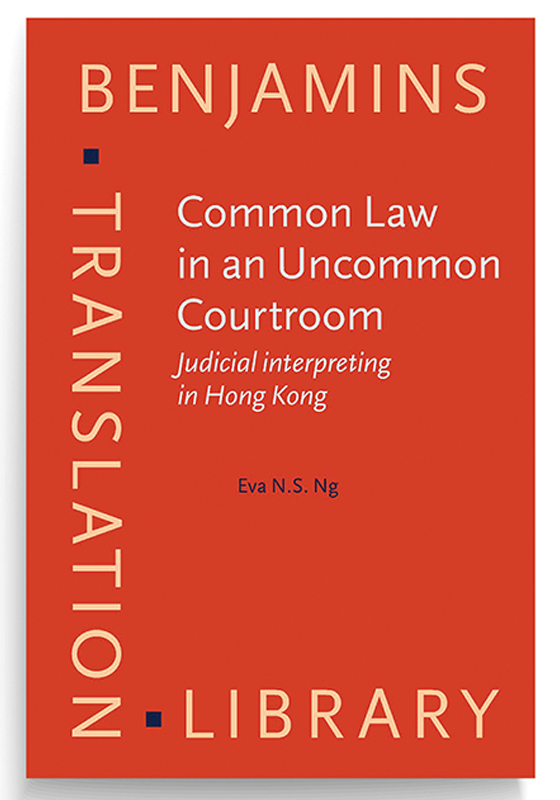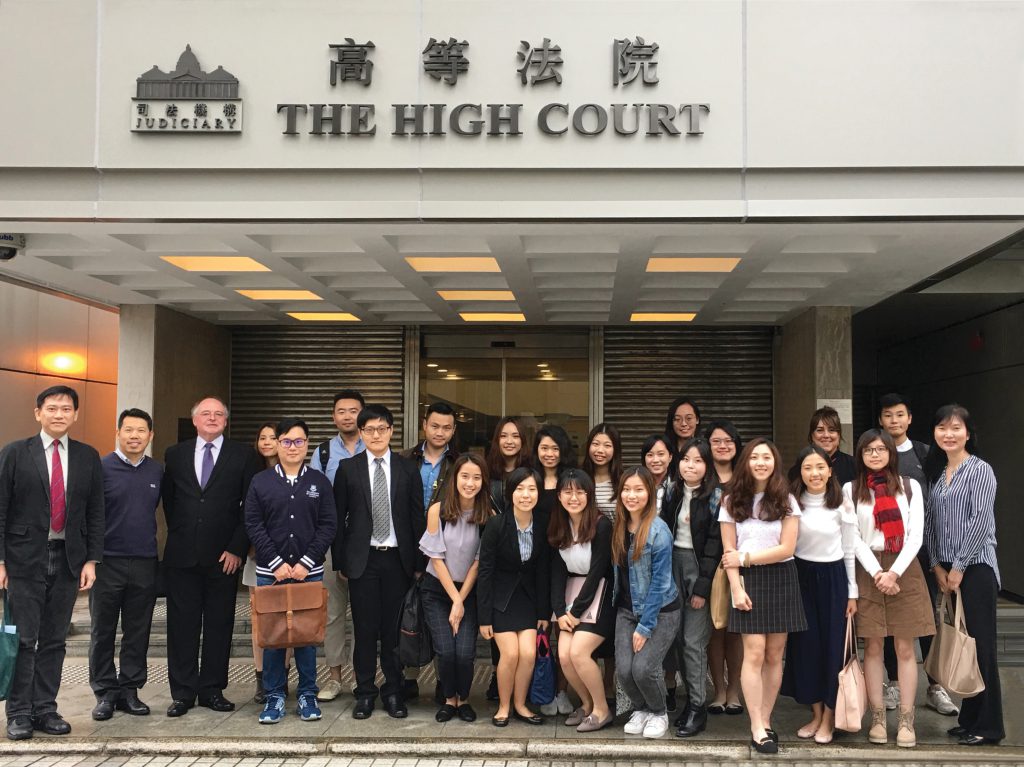November 2019 | Volume 21 No. 1
Mind Your Language
The origins of the book – Common Law in an Uncommon Courtroom: Judicial Interpreting in Hong Kong – go back 25 years to 1994, when Dr Eva Ng joined Hong Kong Judiciary as a Court Interpreter II. She left that job 14 months later, but the uniqueness of the situation stayed with her.
Dr Ng, now Assistant Professor of the Translation programme in HKU’s School of Chinese, said: “The trials I worked at during the first half of my time as a court interpreter were conducted in English, even if the participants in court including the presiding judge and counsel for both parties were Cantonese-speaking locals – a very awkward scenario for the interpreter to work in. An equally odd situation later developed when magistrates started to hear cases in Cantonese but retain the interpreter in court as a language consultant while they silently translated everything said in Cantonese into English because of the requirement back then for the court proceedings to be kept in English.”
Wanting to explore this unique courtroom setting more, she began empirical studies in 2008 when the High Court Registrar granted her access for academic purposes to audio recordings from criminal trials heard in English. From that, and with the support of three internal teaching grants, she developed a new course in Legal Interpreting begun in 2009–2010 and also started her PhD research, completed in 2013, which form the basis of this book.
The work covers many aspects of the issue, including problems that can arise from judges’ intervention in the court proceedings, Chinese witnesses testifying in English, and English-language trials heard by Chinese jurors. It also looks at the limitations associated with the use of chuchotage – simultaneous translation (SI) in a whisper – in the Hong Kong courtroom, where interpreting in an English-language trial is arguably provided to cater for the need of the linguistic majority.

Common Law in an Uncommon Courtroom: Judicial Interpreting in Hong Kong
Author: Dr Eva N S Ng
Publisher: John Benjamins Publishing Company
Year of Publication: 2018
Linguistic power
“My initial aim as I started my thesis was to demonstrate how the presence of bilingual court participants (including, but not limited to, judges and lawyers) might impact on the linguistic power of the court interpreter and the interactional dynamics in court,” said Dr Ng. “In particular, how bilingual counsel may strategically exploit their bilingual skills to monitor the output of the interpreter and to propose alternative interpretations of ambiguous terms or expressions to suit their own purpose.”
She also focusses on Chinese witnesses testifying in English and Chinese jurors’ comprehension in English trials. “On the one hand, Chinese witnesses testifying in English without a good command of the language are necessarily disadvantaged linguistically as they manifest great difficulty in understanding counsel’s questions and in expressing themselves adequately in English,” Dr Ng said.
“On the other hand, the English-medium witness examination process might also impact on the comprehension of the Chinese jurors, who are forced to rely entirely on the English testimony and counsel’s questions asked in English for their comprehension of the evidence.”
She explained the situation further: In the usual case when witnesses testify in Cantonese, consecutive interpretation will be provided, and jurors who have a problem understanding counsel’s questions in English can benefit from the Cantonese interpretation provided in open court.
“However, in the case of a witness testifying in English, or of counsel or the judge addressing the jury, chuchotage will only be provided for the defendant in the dock, often located at the far end of the courtroom opposite to the judge’s bench, to ensure his/her access to the trial in its entirety. It is not accessible to the jury.”
This is what she finds most worrying. “Because jurors as ‘judges of facts’ are expected to return a true verdict based on what they have heard in court, so their comprehension of all the evidence given in court and the judges’ instructions and counsel’s speeches is vital to their deliberations of the verdict.”
For this reason, Dr Ng is currently carrying out an experimental study funded by the Research Grants Council to further investigate Chinese jurors’ understanding of jury instructions and counsels’ speeches as well as evidence given in English, by using recordings extracted from the court data to test potential jurors’ comprehension.
The book does not only look at possible problems Hong Kong’s unique form of bilingual courtroom may pose – it also offers some solutions. Dr Ng would like to see the courts made fully bilingual in the case of English trials, and thinks the Judiciary may consider using the electronic mode of SI, as used in the International Criminal Court in the Hague.
“This way, Chinese jurors who have a problem understanding speeches or utterances made in English will benefit from the interpretation provided for the defendant via their headphones, currently in a whisper. The use of consecutive interpretation for witnesses testifying in Cantonese should be retained to ensure a high level of accuracy.”
Dr Ng concluded: “Court interpreting mitigates linguistic inequalities in the judicial process, and quality in interpreting is vital to the delivery of justice. It must therefore be made a shared responsibility of all the parties involved in the communication process, as well as policymakers, to ensure equal access to justice for all.”

Dr Ng (first from right) arranged a mock trial for students of her Legal Interpreting course, with the participation of lawyers and students from the Department of Professional Legal Education.
Court interpreting mitigates linguistic inequalities in the judicial process, and quality in interpreting is vital to the delivery of justice. It must therefore be made a shared responsibility of all the parties involved in the communication process, as well as policymakers, to ensure equal access to justice for all.

DR EVA NG

